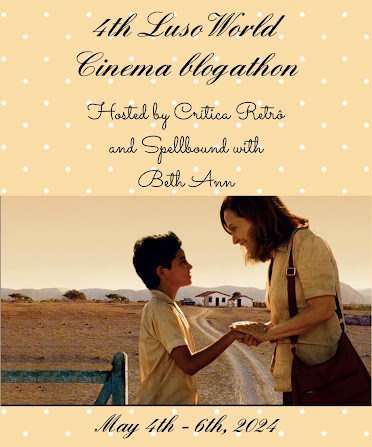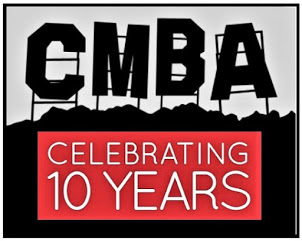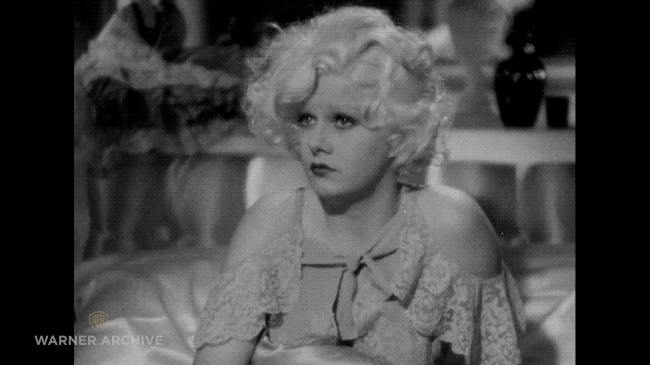The next time you’re in the mood for a truly strange film, give this one a try.
Now, we don’t mean strange as in occultist or supernatural; we mean strange as in, What kind of movie is this?
We’ve recently glommed onto The Great Gabbo (1929), an early “talking picture”. It stars Erich von Stroheim as a mean, ego-fueled ventriloquist who’s slowly seeping into madness. We know he’s Losing It because he has conversations with his ventriloquial figure, Otto, wherein Otto is the Voice Of Reason.
For example, when his girlfriend leaves him, Gabbo isn’t worried, and he relays this to his wooden friend:
Gabbo: “She’ll be back.”
Otto: “I don’t think so. Not this time.”
Otto, we learn, is Gabbo’s alter ego. The wooden figure expresses the things Gabbo can’t or won’t, which is both weird and pitiful.
The film opens when Gabbo, on the verge of stardom, breaks up with the aforementioned girlfriend (Betty Compson). She believes Gabbo is a sweet man Underneath It All – *cough* baloney! – and she wants to gentrify him even though he barely tolerates her. “Of all the bumbling, stupid idiots I have seen in my life, she is the worst,” he snivels.
Anyway.
About Gabbo’s ventriloquist act: If such a performance were possible, it would be astounding. Get this – Gabbo smokes, eats and shoves a woman’s scarf in his mouth, all while giving the wooden figure a clear, obstruction-free speaking voice.
In doing so, Gabbo steals the show away from himself.
He soon takes this act on an acclaimed European tour and returns as the most insufferable kind of megalomaniac – one with a Pedigree.
In our opinion, there are two fascinating aspects to The Great Gabbo.
The first is its reverence for sound, which is to be expected of a movie from 1929. (It was, after all, still early in the sound era.) Filmmakers are pushing the boundaries of sound here, as evidenced by the wooden doll’s unlikely ability to speak effortlessly while Gabbo eats and drinks.
Added to this veneration are ambitious musical numbers. Yup, you read that right: In this film of madness and celebrity, much attention is devoted to dance. You see, Gabbo’s act is the crowning glory of a musical revue, and nearly half the film is spent on these musical productions.
Unsurprisingly, dance doesn’t really mesh with the story, although it does add to the film’s schizophrenia. Gabbo’s life, like his severe military-esque wardrobe, is tightly constrained. When the film breaks into song, it’s something of a relief.
The second hallmark of this film is Erich von Stroheim’s performance. He’s been criticized for being stilted, but there’s authenticity in his performance, as though he’s his own cruel parody.
Which he is.
The Austrian-born von Stroheim was, during the silent era, an actor billed as “the Man You Love to Hate”. After WWI, he became a director of “enchanted realism” films, where characters became undone by their desires. However, von Stroheim, the director, made complex and expensive films which producers were increasingly reluctant to finance. (von Stroheim’s longest and most influential film, Greed, was originally eight hours long; MGM trimmed it to 2.5 hours.)
When von Stroheim fell out of favour as a director, he returned to acting. One of his most prominent roles is that of Gloria Swanson’s butler/ex-husband, Max, in Sunset Boulevard (1950).
Gabbo, of course, is another of his notable roles and, when it comes to the last scene in the film, von Stroheim leaves us with a heartbreaking image. That this churlish and infuriating character should wring so much pity out of us is remarkable.
The Great Gabbo is an unconventional film, but we feel it’s worth it. It looks its age, but it remains surprisingly relevant.
Notes:
- Read the New York Times film review HERE.
- For more info on Erich von Stroheim and his films, click HERE.
The Great Gabbo: starring Erich von Stroheim, Betty Compson, Donald Douglas. Directed by James Cruze (& an uncredited Erich von Stroheim). Written by Ben Hecht & Hugh Herbert. James Cruze Productions, 1929, B&W, 92 mins.











A great account — I think I saw this yonks ago, but only as I read your (fine) review did I start remembering it. It’s worth comparing, I think, with the much later Magic (1978) dir Richard Attenborough, with Anthony Hopkins et al — one of my favorite oddball movies!
I assume that in the first pic Erich von Stroheim has a grapefruit in his hand — no? 🙂
LikeLiked by 1 person
Thanks for the heads up re: Attenborough’s Magic. I’ve never heard of it before. I’ll watch for it.
LikeLike
Watch it there…ventriloquists don’t like to refer to their little pals as “puppets,” and “dummy” is completely off the table. The preferred term ventriloquists use is “figure.” Not that the “figure” will be offended if you use the wrong term.
I’m a puppeteer, but not a ventriloquist. I know the basics of how to talk without moving your lips, but I just haven’t taken the time to practice it. It takes a lot of hard work. I do have many ventriloquist friends, though.
LikeLike
Thank you for clearing that up.
LikeLike
I love a good “mad ventriloquist” movie, and though I’ve heard of it, never had the opportunity to view it yet. Your review makes me want to find it on YouTube (I hope it’s there!). Good work!
LikeLike
I feel this movie is worth it. It’s old, to be sure, but you feel like you’ve seen some interesting film history when you’re done…at least, that’s how I felt.
Also, Otto is really quite creepy.
LikeLiked by 2 people
I haven’t seen THE GREAT GABBO, but am intrigued by ventriloquist films and you’ve piqued my curiosity with this one. I second the recommendation for MAGIC and also an excellent episode of ALFRED HITCHCOCK PRESENTS about a ventriloquist (which stars Tom Conway).
LikeLiked by 1 person
Thanks for the heads up re: Alfred Hitchcock Presents.
…
Ooh! Looks like there’s a copy on YouTube!
LikeLike
Adding to the comment above, there’s also an Alfred Hitchcock Presents episode with Claude Rains as a ventriloquist, and a couple of Twilight Zone episodes as well. As for The Great Gabbo, I agree that it’s worth seeing, if only for its historical value and its sheer oddness. Great review!
LikeLiked by 1 person
Excellent! Thanks for all these recommendations. When it comes to ventriloquist shows, I’ve just barely scratched the surface.
LikeLiked by 1 person
Oh, here’s another: The Dummy Talks (1943).
LikeLiked by 1 person
Excellent! Thanks!
LikeLike